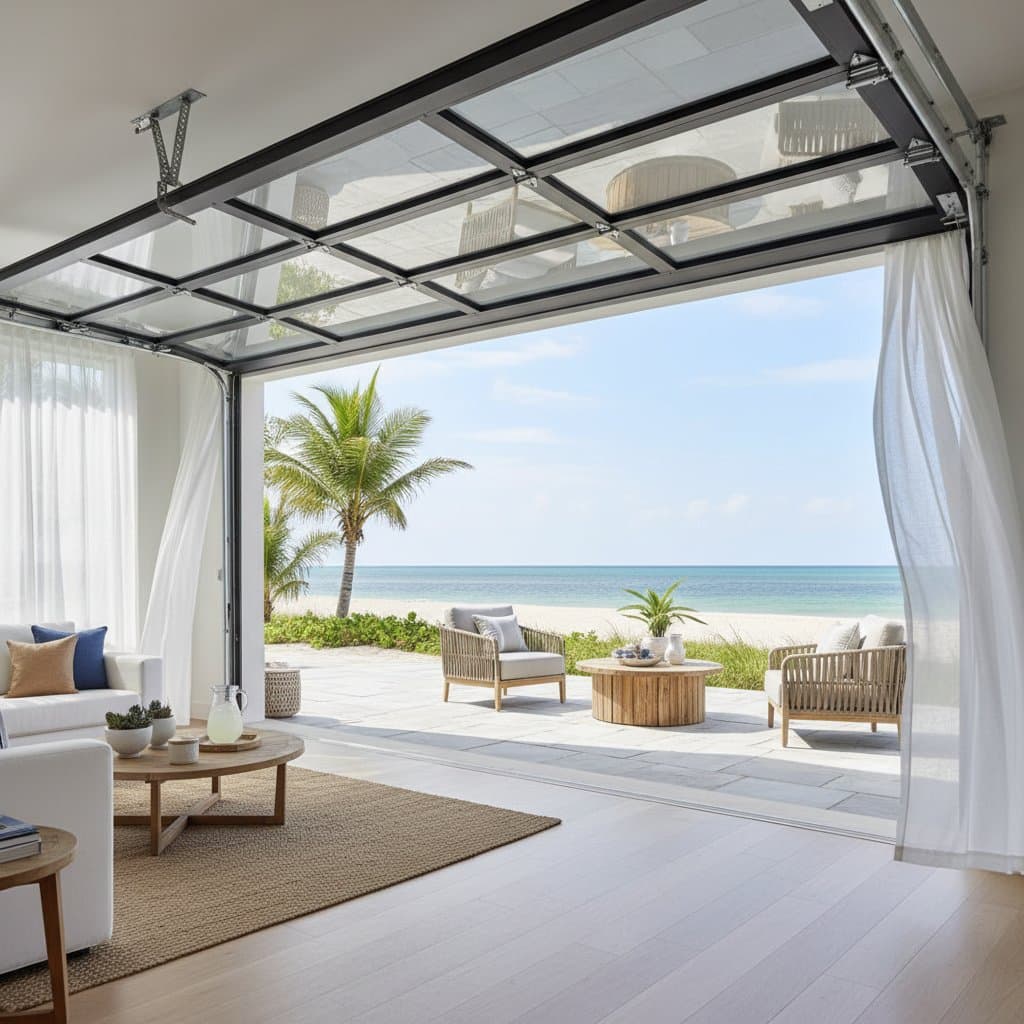Glass Doors Bring Ocean Breezes Inside Year-Round
Coastal living offers unique opportunities to connect with the natural environment. Glass doors serve as an ideal solution for homeowners in areas like San Diego, where ocean breezes enhance indoor comfort. These installations allow fresh air and natural light to flow freely, creating seamless transitions between patios and living spaces.
Homeowners appreciate how glass doors extend usable outdoor areas throughout the year. In mild climates, they provide ventilation without the intrusion of insects or weather elements. This feature proves especially valuable during transitional seasons, when temperatures fluctuate.
Benefits of Integrating Glass Doors in Coastal Settings
Glass doors transform ordinary patios into versatile retreats. They maximize natural ventilation, reducing reliance on air conditioning systems. This approach lowers energy costs and promotes a healthier indoor environment.
Beyond functionality, these doors enhance aesthetic appeal. Clear panels offer unobstructed views of the ocean, fostering a sense of openness. Property values often increase due to the modern, luxurious feel they impart.
Privacy and security remain priorities with contemporary designs. Tempered glass withstands coastal winds and salt exposure, ensuring durability. Many models include locking mechanisms that meet safety standards without compromising the airy atmosphere.
Exploring Types of Glass Doors
Selecting the right type depends on space constraints and usage patterns. Each option offers distinct advantages for coastal applications. Understanding these differences aids in making informed decisions.
Sliding Glass Doors
Sliding glass doors operate on tracks, allowing panels to glide smoothly aside. They suit narrower openings where swing space limits other choices. Installation proves straightforward in standard patio setups.
These doors provide reliable weather sealing when closed. Multi-panel configurations accommodate wider spans, up to 20 feet. Frame materials like aluminum or vinyl resist corrosion from salty air.
Maintenance involves periodic track cleaning to ensure smooth operation. Users find them practical for frequent access during gatherings. Energy-efficient glazing options minimize heat gain from direct sunlight.
Folding Glass Doors
Folding glass doors, also known as bi-fold, stack neatly when opened. This design maximizes aperture width, ideal for expansive patios. Panels pivot on hinges, creating a concertina effect.
They excel in creating fully open walls between indoors and outdoors. Coastal homeowners value the unobstructed flow for entertaining. Hardware selections include soft-close mechanisms to prevent slamming in windy conditions.
Durability features include UV-resistant coatings on glass. Frame choices in powder-coated aluminum withstand marine environments. Professional measurement ensures precise fitting for optimal performance.
Garage-Style Glass Doors
Garage-style glass doors lift vertically, resembling oversized garage entries. They suit large patios or decks requiring full-height access. Hydraulic or counterbalance systems facilitate effortless operation.
This type integrates well with modern architecture, offering a sleek profile. Clear or frosted panels allow light diffusion while maintaining privacy. Reinforcement bars add strength against high winds common in coastal zones.
Operation can be manual or motorized, with remote controls for convenience. Sealing gaskets prevent drafts when lowered. These doors appeal to those seeking dramatic indoor-outdoor connections.
Understanding Cost Ranges and Factors
Costs for glass doors vary widely based on type, size, and features. Basic sliding models start at $1,500 for standard sizes. Custom folding or lift doors reach up to $20,000 for expansive installations.
Material selections influence pricing significantly. Aluminum frames cost more than vinyl but offer superior longevity in salty conditions. Tempered or low-emissivity glass adds to the expense yet provides energy savings over time.
Labor represents another key factor. Professional installation averages $2,000 to $5,000, depending on complexity. DIY approaches suit simple sliding doors but risk voiding warranties on advanced systems.
Additional expenses include permits for structural modifications. Coastal regulations often require wind-resistant certifications. Budgeting 10 to 20 percent extra covers unforeseen adjustments.
Installation Options: DIY Versus Professional
DIY installation appeals to handy homeowners with basic carpentry skills. Sliding doors in pre-hung kits simplify the process. Tools needed include a level, drill, and shims for alignment.
Start by measuring the opening precisely, allowing for expansion gaps. Secure the frame to the wall studs, then hang panels on tracks. Test operation before final adjustments to avoid misalignment.
However, folding or lift doors demand professional expertise. These involve load-bearing supports and electrical wiring for motors. Hiring certified installers ensures compliance with building codes.
Professionals assess site-specific challenges, such as uneven floors or exposure to elements. They provide warranties on workmanship. For coastal properties, experts recommend corrosion-resistant hardware from the outset.
Essential Maintenance for Longevity
Regular upkeep preserves the performance and appearance of glass doors. Clean tracks and hinges quarterly using mild soap and water. Avoid abrasive cleaners that scratch surfaces.
Inspect seals annually for wear, replacing as needed to maintain energy efficiency. Lubricate moving parts with silicone-based products suited for marine environments. This prevents rust and ensures quiet operation.
Glass panels benefit from microfiber cloths for streak-free shine. Address salt buildup promptly in coastal areas to avoid etching. Professional servicing every two years checks structural integrity.
Store screens during off-seasons to protect from weathering. Document maintenance schedules for warranty claims. These habits extend the lifespan beyond 20 years.
Design Choices to Enhance Seaside Style
Design selections personalize glass doors to complement coastal aesthetics. Frame colors in whites or grays blend with beachy palettes. Wood-clad options add warmth for traditional homes.
Glass tints reduce glare from ocean reflections. Frosted sections provide privacy near walkways. Hardware in brushed stainless steel resists tarnishing.
Integrate doors with surrounding landscapes through aligned sightlines. Consider insect screens or shades for versatility. Consult designers for custom integrations that boost overall harmony.
Maximize Comfort and Value with Strategic Upgrades
Implementing glass doors yields immediate improvements in daily living. Homeowners enjoy enhanced ventilation and views that invigorate spaces. These upgrades align with sustainable practices by optimizing natural resources.
Property resale potential rises with such modern features. Buyers seek seamless indoor-outdoor flows in coastal markets. Thoughtful selections ensure lasting satisfaction and equity growth.
Begin planning by evaluating your patio's dimensions and needs. Explore local suppliers for samples. This investment transforms ordinary homes into exceptional retreats.

